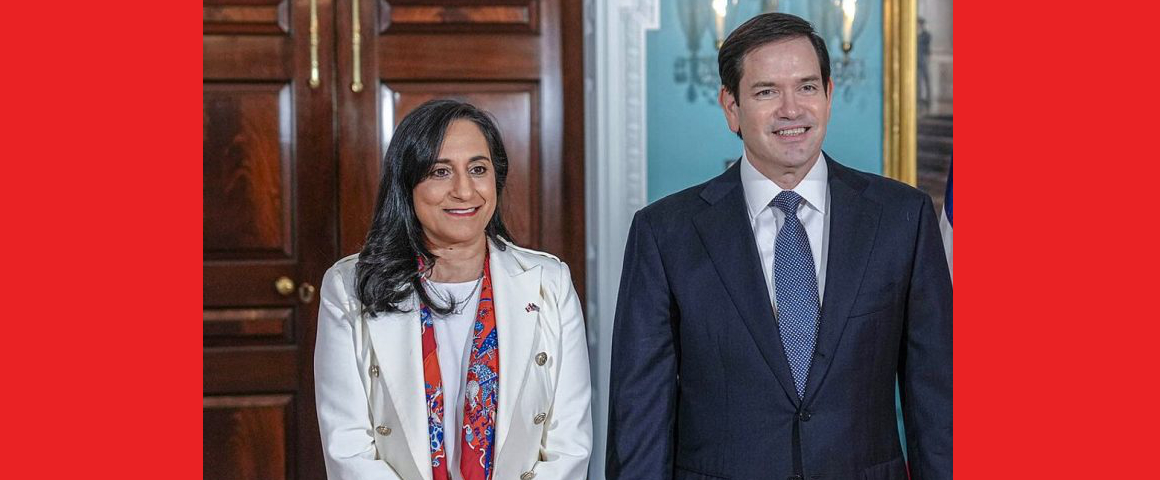People’s Voice Commentary
The world is watching the latest political in-fighting in Washington with a mixture of fascination and dread. This is not surprising, since every twist and turn of the melodrama around the current occupant of the White House has implications for other countries.
But personalizing politics doesn’t help us understand the huge challenges faced by humanity – the widening gap between billions of impoverished people and a handful of super-billionaires, unending imperialist wars and militarism, the deepening crisis of climate change, the assault by powerful transnational corporations against working class rights, ongoing attempts by bigots and fundamentalists to roll back social and equality gains. These issues emerged long before the 2016 US election, and they will remain after Trump leaves office, whenever that happens.
However, the working class and its allies cannot ignore immediate developments such as the recent NATO summit, or the subsequent Trump/Putin meeting in Helsinki. Every day, even every hour, new headlines pop up. But instead of being drawn into the intricate details of each new revelation, we need to zoom out for a wider overall picture. This commentary is not meant to address every angle of this fast-changing situation, but it does aim to provide a broader perspective.
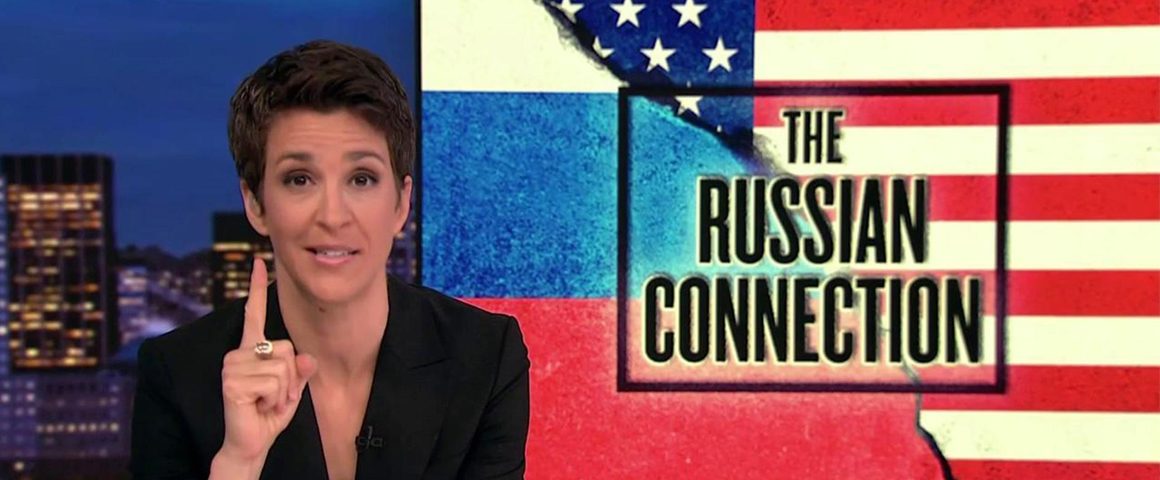
“Meddling” accusations: an exercise in hypocrisy
On one level, the campaign around “Russian meddling” in US elections is pure hypocrisy; everyone knows that the US has influenced or rigged hundreds of foreign elections since the Cold War era. Its interference in the sovereignty of other countries is sometimes covert, but often is financed openly through budget appropriations for organizations such as the National Endowment for Democracy. The bipartisan consensus around this decades-long strategy uses the term “democracy building” to cloak its real aim – to block working people from electing governments which put their own interests ahead of the demands of imperialism. The success of this propaganda campaign is evident in the degree to which it is accepted by many in the US who hold otherwise progressive positions on domestic issues.
Given this context, whether or not certain elements of the Russian state “meddled” in the 2016 US election is not the main question. Certainly many Russians hoped that Donald Trump would defeat Hilary Clinton, the Democratic candidate well-known for her vicious anti-Russia positions and for her role in imposing US imperialism abroad. It would hardly be surprising if some tried to influence US voters. Trump’s campaign manager Paul Manafort has close links with Russian capitalists, raising suspicions that material interests may have been a factor in this process.
But the real enemy of US electoral democracy is internal. The forces around the Trump regime include those responsible for voter suppression strategies aimed at the US black population and other racialized minorities, gerrymandering to favour Republican candidates, removal of any meaningful election spending limits, and a host of dirty tricks – social media and otherwise. The sabotage of electoral democracy in the United States pre-dates 2016 by over two centuries, and far outweighs the impact of phony Facebook accounts.
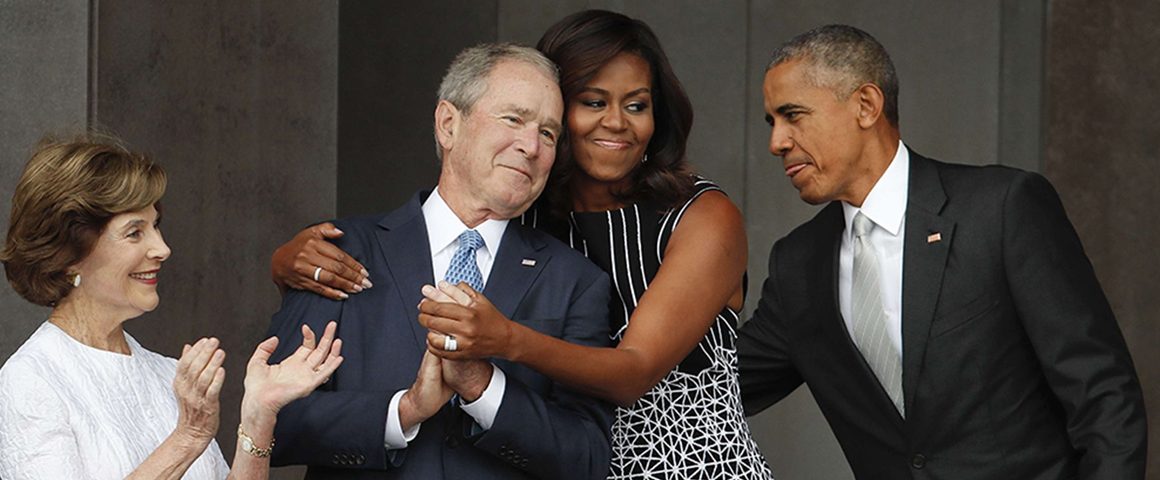
Is there a split in the ruling class?
It would be erroneous to conclude that Trump’s controversial behaviour reveals a fundamental split in the US ruling class. But there are significant differences. The Trump strategy seems to be to divide potential rivals and threats – posing Britain against the EU, for example, or attempting to drive a wedge between Russia and China (countries with different systems but many shared interests). This contrasts with the traditional post-war approach, centred on building US-led alliances of imperialist states and dependent countries, first to isolate the so-called “Communist threat”, or later to encircle and isolate Russia and China. The frictions between these camps are primarily over how to preserve and extend US imperialist hegemony at a time when its economic primacy is declining.
It would also be too simple to describe the situation in the United States as a clash between “democratic” Americans and an out-of-control Commander in Chief. Trump and his “Make America Great Again” movement are not just a fringe collection of fascists, nationalists, racists, and fundamentalist Christian zealots. By delivering on corporate demands for big tax cuts to the wealthy, and his other moves to support corporate interests, Trump has proven that his allegiance is first and foremost to big capital, despite his pose as an “outsider”.
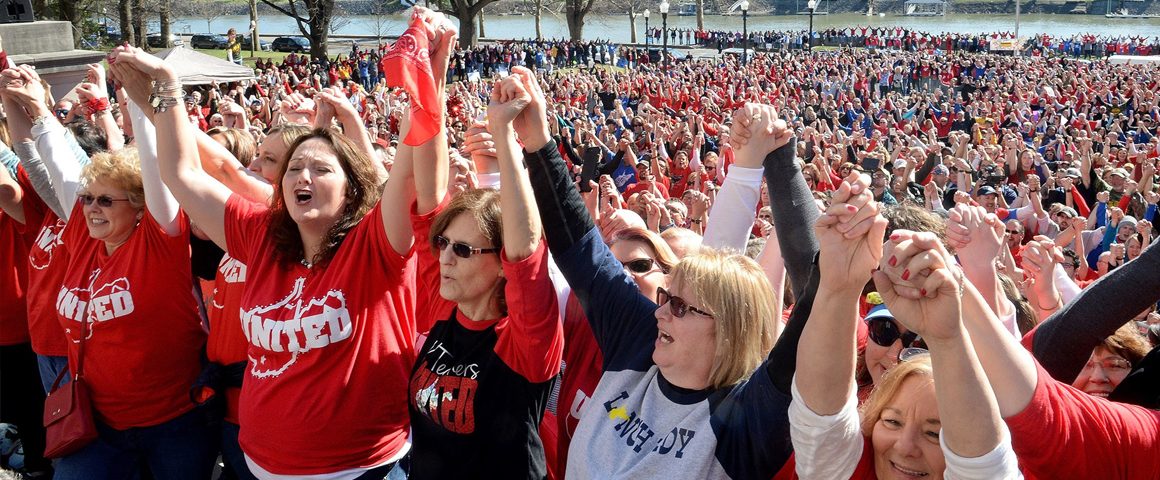
The US domestic conflict sharpens
Among their many crimes, Trump and his MAGA crowd are working to eliminate women’s reproductive rights, whip up violence against immigrants and the LGBTQ community, smash trade unions, and remove electoral rights.
However, recent months have also seen a more positive trend across the United States – a series of heroic strikes by teachers and other workers, the huge outcry against the separation of migrant families at the border, massive rallies by women and their allies against the misogyny of Trump and the threat that his latest Supreme Court nominee could overturn Roe v. Wade, powerful protests against racist police violence, electoral victories by candidates running on openly radical and anti-corporate platforms. Given this emerging fightback, the balance of forces in Congress may shift in the November 2018 mid-terms, undermining the power of the ultra-right. But this scenario also frightens the traditional pro-corporate and pro-imperialist leadership of the Democrats.
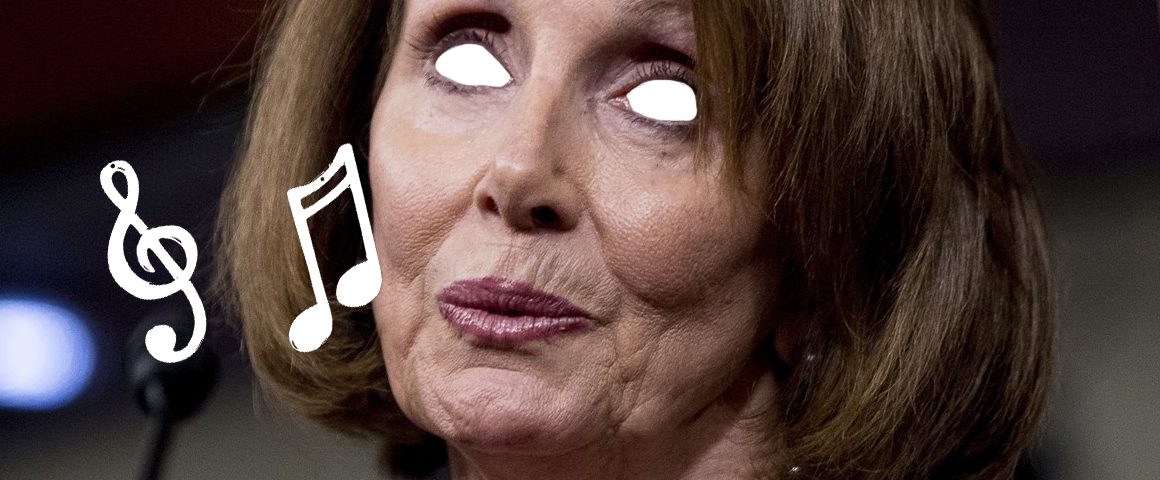
Shifting the terrain to “Trump’s treason”
Since his meeting with Russian President Putin in Helsinki, the corporate media, the Democrats in Congress, and even some elected Republicans have charged that Trump sold out his country, and should be driven out of office. The end of this vile character’s political career would be widely welcomed (including by People’s Voice), but we also shudder at the prospect of ultra-reactionary Mike Pence in the White House.
Here’s our question: why has the right-wing leadership of the Democratic Party chosen this particular issue to mount a serious challenge against Trump? Instead of mobilizing for the mid-terms around a progressive agenda, these forces seem to fear a left upsurge within their own party.
The top Democrats in Congress appear to be channelling resistance against Trump away from any serious challenge to corporate domination, and demanding restoration of the traditional bi-partisan policy of building international alliances of imperialist and client states to isolate Russia (previously the USSR), China, Cuba, etc. They advocate a reactionary, pro-war, militarist strategy: new sanctions against the DPRK and Russia, escalation of US support for jihadi groups fighting the secular government of Syria, “regime change” against so-called “rogue” countries such as Iran and Venezuela, ongoing support for the Israeli zionist state, ratcheting up the military encirclement of Russia and China, further expansion of NATO, etc. These policies raise the danger of nuclear catastrophe, and undermine any genuine attempts to tackle climate change.
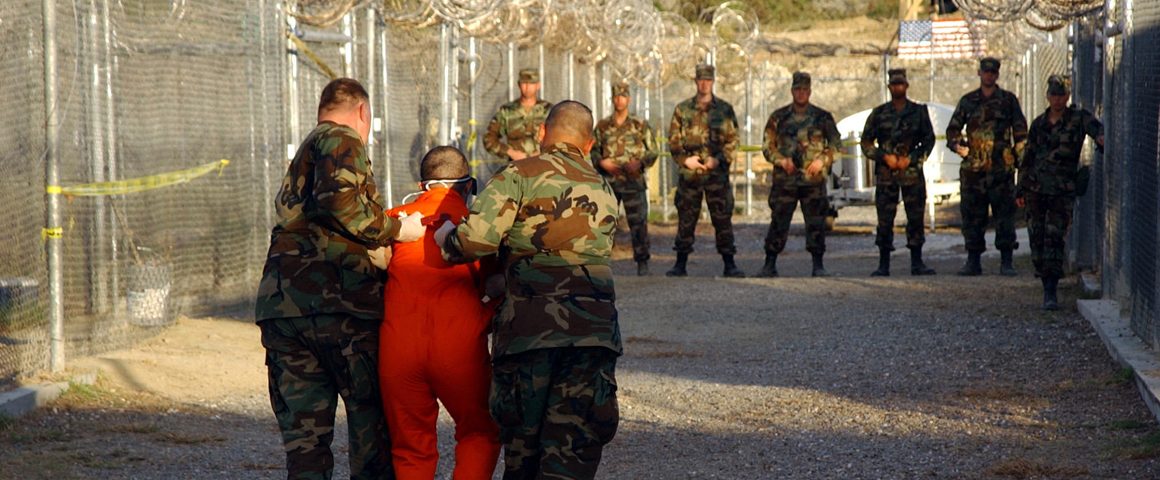
Defending the organs of state power
In the push to oust Trump for “caving to Putin”, some “progressives” even trumpet their defence of supposedly “democratic” institutions such as the FBI, US intelligence agencies, and the military from While House interference. This scenario is built on the classic Hollywood portrayal of heroic FBI agents and CIA operatives, bravely putting their lives on the line to protect ordinary Americans. In real life, backing these anti-people organs of state power only undermines the growing popular resistance within the US itself against the far-right agenda.

Playing into the war agenda
Objectively, moves to shift the struggle against Trump and his racist and fascist allies, away from the fight for working class interests and defence of equality gains, plays into the hands of the military-industrial complex.
Trump’s dream is to “end multilateralism,” creating a world in which the US alone has economic and military hegemony, dictating orders from Washington. Traditional allies – EU, Canada, Mexico etc – are being threatened to support the US or pay the price.
But the Democrat leadership’s tactic meshes neatly with the traditional strategy advanced by the main political drivers in the US. This approach includes a unified NATO serving as imperialism’s war machine, ensuring that no country interferes with the agenda of global corporate and military domination.
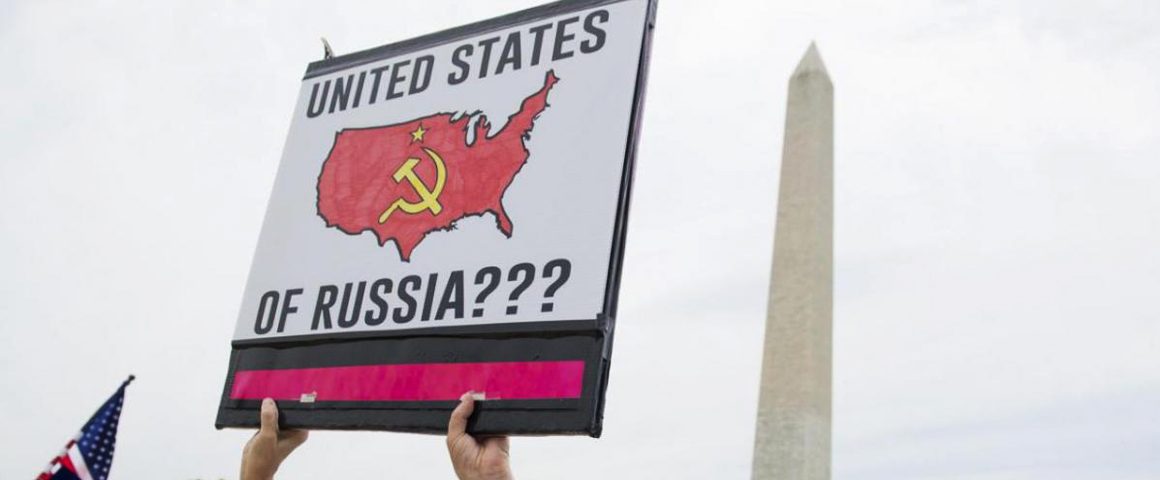
Don’t fall into the anti-Russia trap
The United States (and Canada) have long histories of virulent anti-Soviet and anti-Russia campaigns. There are certainly features of Russian society which draw criticism, such as anti-LGBTQ sentiments at both the grassroots and official level. (Even here, we would point out that bigoted fundamentalist forces within the USA actively promote homophobia and transphobia in other countries.)
But much of today’s Russophobia is based on propaganda, not facts. The “annexation of Crimea” is the best example. Crimea became part of Russia in 1783, and has long been ethnically Russian, even after it was transferred to the Ukrainian SSR in 1954 as an Autonomous Region. During the takeover of Ukraine by pro-fascist forces in 2014, the elected parliament of the Crimean Autonomous Region exercised its constitutional right to secede from Ukraine and join the Russian Federation – a move which was overwhelmingly backed in a referendum.
The real enemy of global democracy and freedom is not Putin’s Russia – it is US imperialism, whether in the form of MAGA nationalism, or disguised as benevolent Uncle Sam. The rise of the ultra-right in the US and other countries today cannot be stopped by calls for a re-energized US-EU-NATO imperialist alliance against Russia (with Canada playing a leading role!).
Lining up behind the Justin Trudeaus and Angela Merkels of the world will not stop the advance of fascism. The only real alternative is build a broad coalition to fight for a true People’s Alternative to neoliberal austerity, climate catastrophe, and war.



